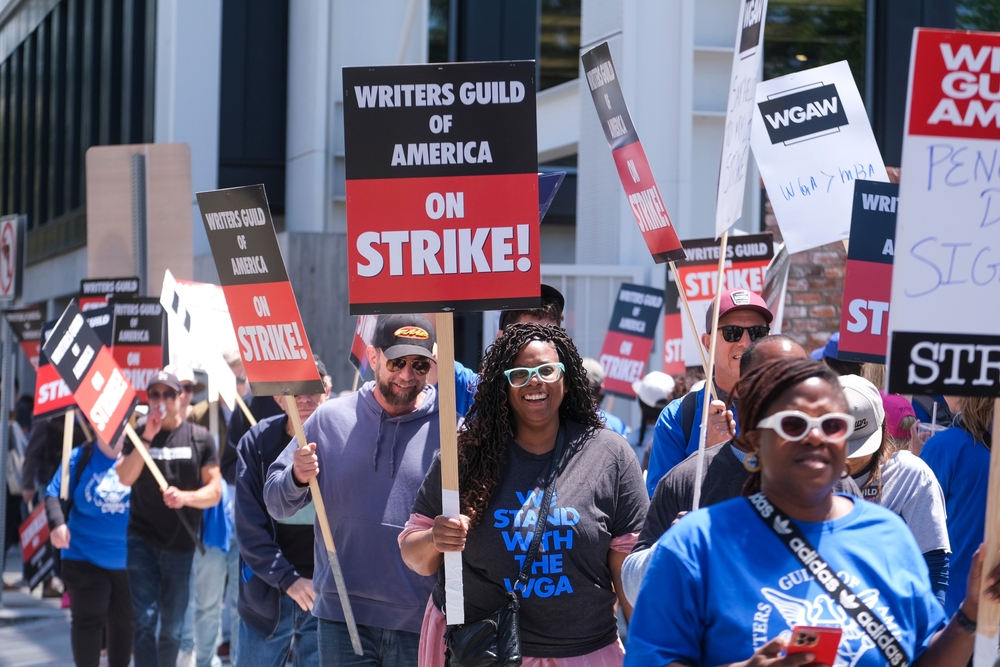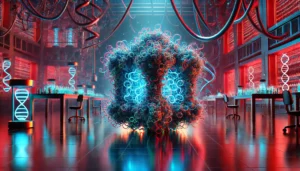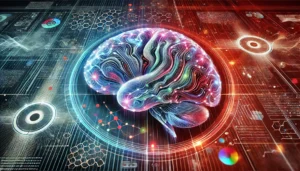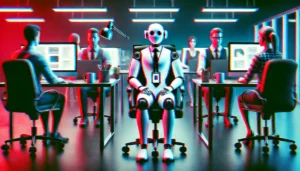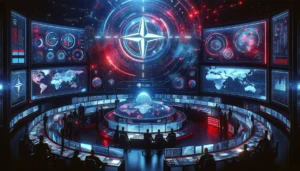AI’s capacity to replace jobs is hardly news. But how do you feel about AI-generated “digital twins” replacing your favorite musicians, actors, and TV personalities?
Earlier in May, the Writers Guild of America (WGA), a union representing television and film writers, went on strike after failing to come to agreements with the Alliance of Motion Picture and Television Producers (AMPTP). The WGA wanted to ban ChatGPT and other generative AI from reducing the pool of professional work.
Virginia Doellgast, Professor of Employment Relations and Dispute Resolution at Cornell University in New York, said, “The fear is that AI could be used to produce first drafts of shows, and then a small number of writers would work off of those scripts.”
The WGA isn’t the only union taking action against AI. The Screen Actors Guild and the American Federation of Television and Radio Artists (SAG-AFTRA) are set to begin negotiations with the Alliance of Motion Picture and Television Producers on 7 June.
On this occasion, the debate centers around “digital twins,” digital copies of real-life people.
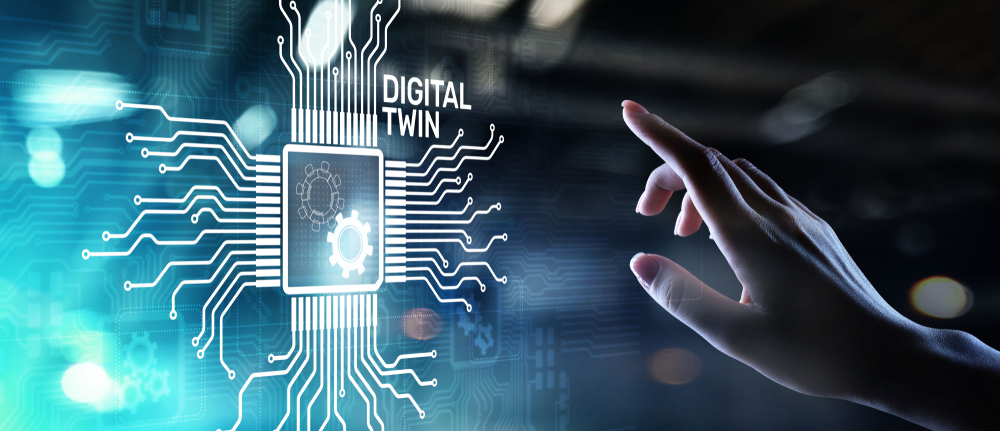
And it doesn’t stop there. The International Alliance of Theatrical Stage Employees (IATSE), representing some 168,000 media technicians, designers, and artists, is also forming a commission on the impacts of AI.
Digital twins could replace real actors
In a recent podcast, Tom Hanks spoke about digital twins; “I could be hit by a bus tomorrow, and that’s it, but my performances can go on and on and on… Outside of the understanding that it’s been done by AI or deep fake, there’ll be nothing to tell you that it’s not me.”
The question is, who would gain control of digital twins? If the producers control them, they could use them to produce TV and media without paying actors. As soon as copies are out there, they could become extremely hard to reign in and regulate.
AI on the big screen
AI has already come to a cinema near you.
For instance, AI superimposed generated lips onto an actor to give them the ability to “speak” a language they didn’t know.
De-aging AIs slashed decades from the face of Harrison Ford in his upcoming film Indiana Jones and the Dial of Destiny, a technology also used for Al Pacino, Robert De Niro, and Joe Pesci in The Irishman.
There are also cases of actors and artists signing away rights to AI-generated copies of their ‘assets.’
For example, James Earl Jones, who voiced Darth Vader, approved the use of AI-generated voice replicas. Actors may be able to represent themselves in films, TV, and adverts without being present on set.
Impacts of the strikes
The WGA strike has already shut down projects at top studios in New York and Los Angeles, and a strike by SAG-AFTRA would likely grind the industry to a halt.
What happens next could be an indicator test for creative industries worldwide. If producers are quick to cut costs for the sake of productivity at the sacrifice of creativity, they risk alienating investors, artists, and audiences. Additionally, misjudging the industry’s solidarity may prove a fatal error if talent leaves the industry en masse.
And then there’s the deep ethical question of what happens to the arts when humans lose control and how we should act to maintain authenticity.
Regarding practical solutions, actors argue the case for industry-wide AI-related rights, which apply to new and established actors. Then, individuals can waive those rights on a contractual basis.
Another piece of the puzzle is what happens after actors die – can their AI copies be licensed for eternity?
If so, why would producers pay new actors when they can reach into a digital vault of iconic talent from the past?
What does the AI industry have to say?
There is one constant among all this – the growth and development of AI.
On May 16th, the “AI on the Lot” event took place in LA to showcase the growing role of AI in film, TV, animation, and media production.
Companies like Dell, Hewlett-Packard, and Nvidia hosted some 400 sessions on how AI will shape the industry.
An attendee described the event as “Energy at a high, but also anxiety. This is what innovation feels like.”
Hollywood x AI 🎬🤖
Energy at a high, but also anxiety. This is what innovation feels like.
AI is at an inflection point, but is the industry? Filmmakers, studio executives, and AI folks from @OpenAI @nvidia @Legendary @netflix @medialab @Variety etc. jammed on topics around… pic.twitter.com/c6qqv1yhxn
— Wilson Kyi (@WilsonKyi) May 17, 2023
Several developers, including Adobe and Nvidia, are working on video generators that could create realistic video from mere text prompts. Creating film and TV could become entirely automated from ideation to production.
As the plot surrounding AI’s role in the US film and TV industry thickens, other unions are watching on.
Do producers act to protect their workforce? Can AI’s influence over the creative arts be halted? Is regulation realistic?
The answers to these questions will be informative for anyone anxious about losing their job to AI.

